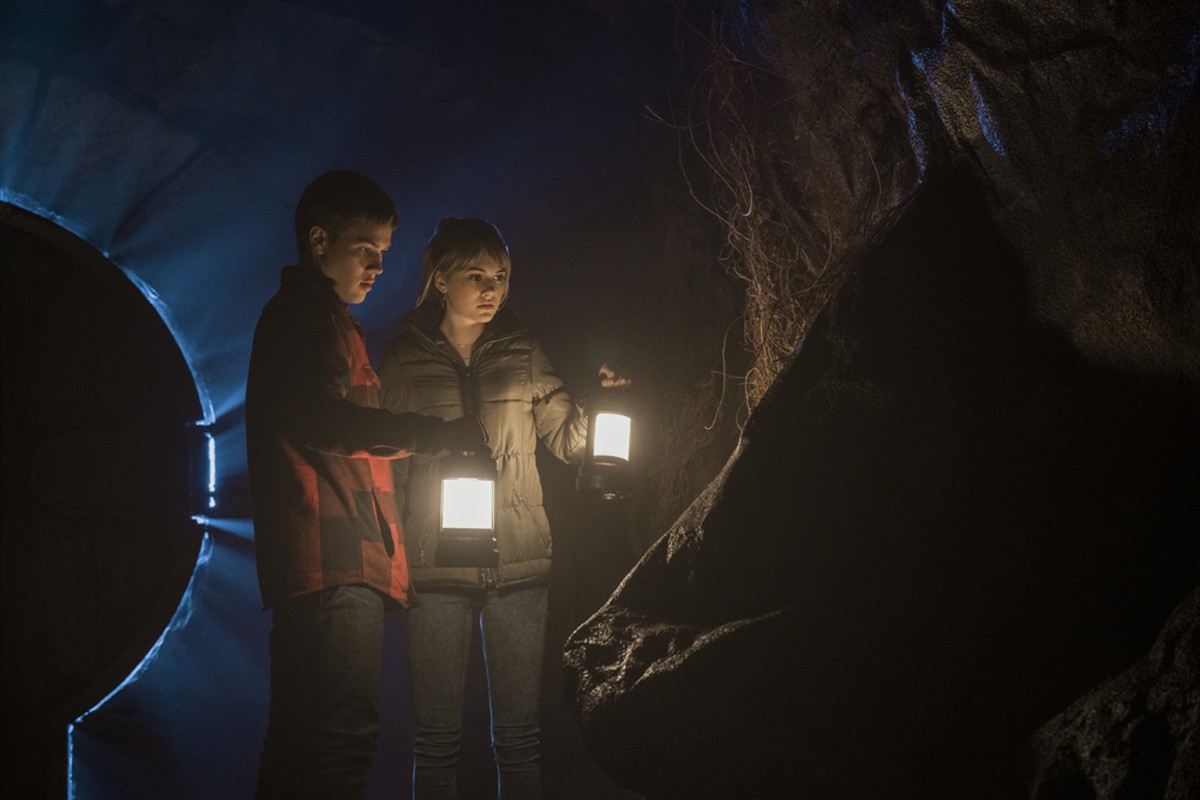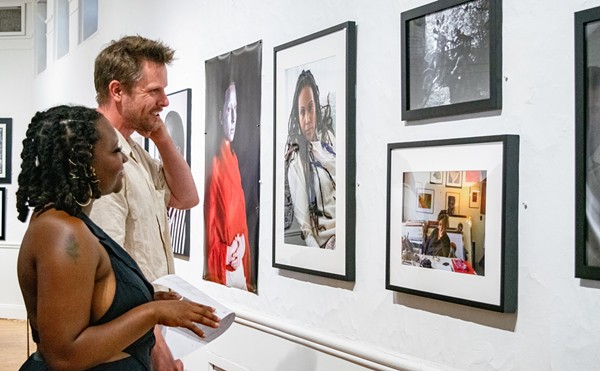The superhero genre might be the first thing we think of when we hear the term "comic book adaptation," but there's a bumper crop of comic adaptations that don't feature tights popping up on screens both big and small over the past few years. The most obvious example might be Riverdale and its spin-offs, which breathed new life — along with a parade of bonkers plot developments — into the tales of the good-natured Archie and his pals. Meanwhile, more adult-focused properties like Y: The Last Man are slated for release later this year. In the meantime, we have Netflix's adaptation of Joe Hill's Locke & Key comics, debuting this week.
The major plot points of the comic series remain intact for the show. The Locke family matriarch, Nina (Darby Stanchfield), moves her three children to an inherited mansion after a family tragedy. Youngest son Bode (Jackson Robert Scott) starts to find strange, whispering keys that perform a variety of magic functions hidden around the house. Older siblings Tyler (Connor Jessup) and Kinsey (Emilia Jones) use the keys in a variety of ways while investigating their connection to the house and their family. Meanwhile, shadowy figures conspire to get their hands on the keys for their own nefarious purposes.
For the most part, the show succeeds at adapting the dark fantasy and horror elements of the comics into a visual medium. The moments when the kids encounter new keys and their bizarre functions — everything from keys that start fires to keys that let you visit your own subconscious — are the high points of the show, long with the ever-unraveling mystery surrounding them.
The show balances the supernatural sleuthing with a fair amount of high-school intrigue. The strength of Tyler's and Kinsey's respective subplots vary. Kinsey's adoption by a small clique of horror nerds yields some good moments, while Tyler's struggle to basically not be a dick is met with yawns. Despite the easy comparisons to the seminal Buffy the Vampire Slayer, Locke & Key lacks that show's deft hand at merging characters' personal struggles with real-world significance.
While Tyler and Kinsey's plots are hit-and-miss, the youngest Locke, Bode, eventually elicits a cringe every time he appears for a scene. While it's always a gamble to rely on a young actor to do the heavy lifting, Jackson Robert Scott doesn't seem to have the emotional range to make Bode anything other than an exceedingly annoying little brother. It's not all the actor's fault, though. The script has Bode acting like, essentially, a child in a horror movie, trying to justify some really stupid actions through the character's age. It just doesn't work here.
Thankfully, the villain of the first season, Dodge, gets a name-making turn from Laysla De Oliveira. The actress imbues the mysterious stranger — first encountered at the bottom of a well — with equal parts malice and swagger. As her past — and her connection to the Locke family — is revealed, Oliveira's performance seems to answer the question, "What if Katee Sackhoff's Starbuck from Battlestar Galactica, but more demonstrably evil?"
Although adapting Locke & Key to the small screen might end up highlighting some of the property's weak points — the Bode character, a tendency to throw in weird stuff just for the sake of having weird stuff, a tendency to veer into YA tone and tropes — fans will be pleased with the effort here, especially since this is the fourth attempt to turn the story into a movie or TV show.
Stay on top of Detroit news and views. Sign up for our weekly issue newsletter delivered each Wednesday.






